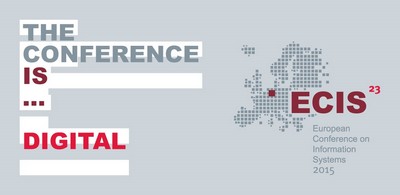DOI
10.18151/7217461
Abstract
In empirical sciences, one of the best-known measures for a theory's strength is its falsifiability. This principle, originally introduced by philosopher Karl Popper (1902–1994), holds that good theories make bold and empirically testable claims that survive repeated attempts of falsification, i.e., attempts to prove that a theory is invalid. According to Popper, scientific progress requires provisional falsifiable theories and their refutations that show where the existing theories need to be corrected. This is not, however, how majority of research in Information Systems Science appears to operate. Instead, much research follows an inductivist approach where researchers attempt to extend theories to new domains and obtain positive empirical confirmation. Such research, however, is weaker than falsification in terms of validation. We exemplify this research practice by tracing the history of IS use model development and by presenting examples of studies that suggest how falsification can be applied in IS research to examine existing theories’ boundary conditions. We summarize this essay by suggesting how falsification can be integrated fruitfully into replication and comparison studies.
Recommended Citation
Salovaara, Antti and Merikivi, Jani, "IS Research Progress Would Benefit from Increased Falsification of Existing Theories" (2015). ECIS 2015 Completed Research Papers. Paper 157.
ISBN 978-3-00-050284-2
https://aisel.aisnet.org/ecis2015_cr/157


